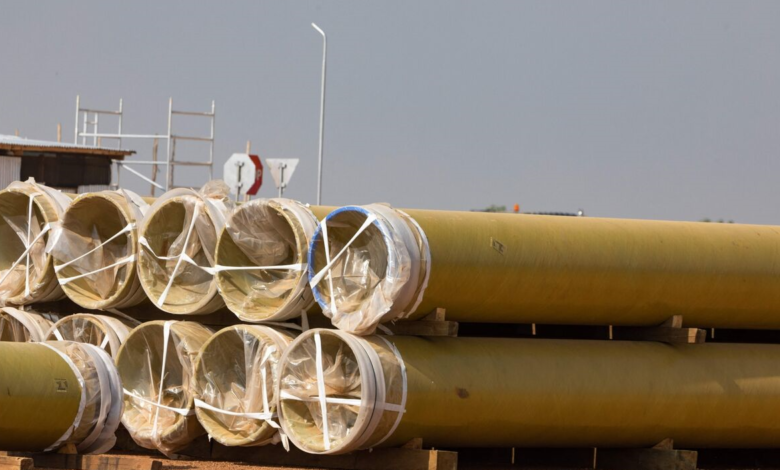
Pre-Export Verification of Conformity (PVoC) for Oil and Gas Projects
Engaging Experience Eliminates Costly Delays
A delay in the delivery of equipment due to non-compliance against set import regulations has a domino effect on project implementation in the oil and gas sectors. Regarded as the world’s leading testing, inspection, and certification company, SGS is well-versed in the provision of relevant PVoC services to the client’s expectations.
There has never been a perfect time to partner with a reputable CAB for PVOC services. Currently, exporters to oil and gas projects face various infrastructure challenges and the availability of vessels and containers in African countries.
Common Challenge
One of the common challenges is that goods may get stuck at their final destination during the clearing process. “This can be a costly incident for the exporter, as destination inspections carry a minimum of a 5% penalty, coupled with storage costs for the time the goods are held up. Should goods be rejected at the destination, the exporter also incurs the cost of bringing back or discarding the goods in a foreign country. To lose custody over their goods during this period is a very stressful and uncontrollable situation for the exporter,” states Johan Eksteen, the Business Manager for Connectivity and Products at SGS South Africa.
Detrimental impact
Clearing challenges encountered could have a detrimental impact on project requirements, especially from the delivery standpoint. Timing is everything in oil and gas projects, as normally the project work will carry huge penalties on late delivery dates. The reason for these penalties is to prevent project delays that will have a domino effect on all the suppliers involved.
Consequently, to overcome this, a Quality Management System (QMS) can be implemented by manufacturers to verify the quality of their goods. This also goes a long way in getting the needed test results and quality documents for clearing the goods at the source.
SGS’s Expertise
Pre-Export Verification of Conformity (PvoC) is an area in which SGS has extensive expertise. SGS also has testing capabilities and a certification division that can assist manufacturers in overcoming these bottlenecks in the flow of their products.
SGS is the world’s leading testing, inspection, and certification company.
Operating a network of 2,650 offices and laboratories, the company is recognized as the global benchmark for sustainability, quality, and integrity. The company advises potential clients both exporters and importers to partner with experienced companies to eliminate costs.
Sidebar
PVoC Contract with the Petroleum Authority of Uganda (PAU)
Based on its inimitable track record, SGS won a contract with the Petroleum Authority of Uganda (PAU) on 15 February 2024, for five years. The PAU, working with the Uganda National Bureau of Standards (UNBS) and other relevant government institutions, is implementing a quality assurance strategy while importing specialized equipment and materials for oil and gas projects in Uganda.
In particular, the PAU is very strict by ensuring all suppliers are vetted and are on the list of approved suppliers before any equipment or services are imported. This is just part of the quality verification process, but it is a very important step to ensure that the delivery of projects to the highest standards.
If suppliers fail to understand the administrative process and regulatory requirements, their products will be held up, and they will face late delivery penalties.
According to the contract, SGS will undertake pre-export of conformity (PVoC) assessments of specialized materials and equipment for oil and gas projects before importation to Uganda. The Petroleum Authority of Uganda (PAU) will provide these standards and SGS will ensure compliance with these standards during the design, installation, operation, and decommissioning of petroleum activities and midstream operations with the help of SGS.
SGS is confident that it will deliver. “We foresee a huge boost to the industrial supply chains, who will provide the needed equipment, goods, and consumables to establish and develop the petroleum business in Uganda,” according to Johan Eksteen.
Milestones thus far
The contract is the PAU’s statement of approval or recognition of the SGS’s competence in PVOC. The testing and inspection entity had consulted with the petroleum body, providing the groundwork. Its partnership with the PAU resulted in the following milestones:
- SGS was proactive in doing the needed research to find who the relevant listed suppliers are to the Petroleum Authority of Uganda (PAU).
- The next step was to see who the existing clients were and to inform them of SGS’s role in this contract.
- SGS contacted all non-SGS clients to inform them of the services they deliver.
- SGS trained their inspectors on the specific requirements laid out by the Petroleum Authority of Uganda (PAU) to ensure they comply with the agreed Key Performance Indicators (KPI’s) as per the contract. These include days allowed to do the inspections and deliver a Certificate of Conformity (CoC).






